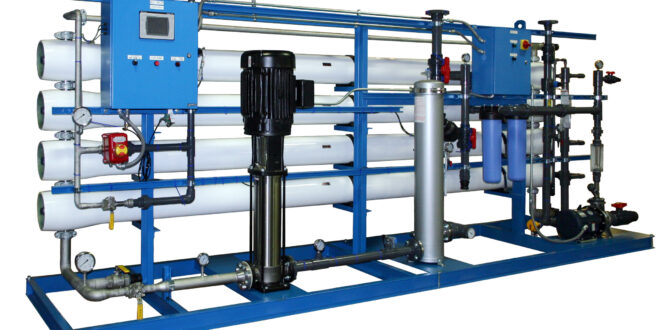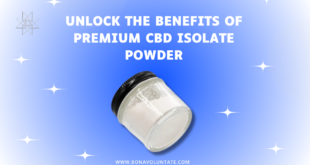Starting a business in the Reverse Osmosis (RO) plant industry can be both rewarding and challenging. As water scarcity and contamination continue to be major concerns in many parts of the world, particularly in Pakistan, the demand for clean and safe drinking water is on the rise. This presents a lucrative opportunity for entrepreneurs looking to venture into the RO plant business, especially for those aiming to establish a water shop or tap into the drinking water business. However, navigating this industry requires careful planning, a deep understanding of market dynamics, and a commitment to quality and innovation. In this blog, we’ll explore the key steps and strategies for taking an RO plant business from startup to success.
- Understanding the Market Landscape
Before diving into the RO plant business, it’s essential to conduct thorough market research. Understanding the market landscape involves identifying the demand for RO plants in your target region, analyzing the competitive environment, and recognizing the key challenges and opportunities.
In Pakistan, for instance, the demand for RO plants is driven by the increasing awareness of waterborne diseases, the need for clean drinking water in both urban and rural areas, and government regulations aimed at improving water quality standards. However, the market is also characterized by intense competition, with numerous players offering similar products and services. To succeed, it’s crucial to identify a niche or unique selling proposition (USP) that sets your business apart from the competition, such as focusing on industrial RO plants or introducing mobile RO plants for greater accessibility.
- Developing a Business Plan
A well-structured business plan is the foundation of any successful startup. For an RO plant business, the business plan should outline your vision, mission, target market, revenue model, marketing strategy, operational plan, and financial projections.
Your business plan should also address key questions such as:
- What type of RO plants will you offer (e.g., residential, commercial, industrial)?
- What is your pricing strategy?
- How will you differentiate your products from competitors?
- What are the initial startup costs, and how will you finance your business?
- What are the potential risks, and how will you mitigate them?
A comprehensive business plan not only serves as a roadmap for your business but also helps attract investors and secure funding, especially for those looking to capitalize on the growing bottled water business or start a mineral water shop.
- Securing Funding
Starting an RO plant business requires significant capital investment, particularly in the initial stages. You’ll need to invest in equipment, raw materials, manufacturing facilities, and marketing. Securing funding can be challenging, especially for startups without a proven track record.
There are several options for funding your RO plant business, including:
- Personal Savings: Using personal savings is a common way to fund a startup, but it involves a significant level of risk.
- Bank Loans: Banks offer various loan options for small businesses. However, securing a loan may require collateral and a strong credit history.
- Investors: Attracting investors can provide the capital needed to launch your business. Investors may be individuals, venture capital firms, or angel investors.
- Government Grants and Subsidies: In some regions, the government may offer grants or subsidies for businesses in the water purification industry. Research available programs and apply for any that you qualify for.
Regardless of the funding source, it’s important to have a clear plan for how the funds will be used and how you will achieve profitability, especially if you’re looking to become the best RO plant company in your region.
- Establishing a Supply Chain
A reliable supply chain is critical to the success of your RO plant business. You’ll need to source high-quality materials, including membranes, pumps, filters, and other components required for RO systems. Establishing strong relationships with suppliers can help ensure that you receive consistent, high-quality materials at competitive prices.
When selecting suppliers, consider factors such as:
- Quality: The quality of your RO systems will depend on the quality of the materials you use. Choose suppliers with a reputation for producing reliable, high-performance components.
- Cost: While cost is an important consideration, it shouldn’t come at the expense of quality. Look for suppliers that offer a good balance of quality and affordability.
- Lead Times: Timely delivery of materials is essential to meet production schedules and customer demands. Choose suppliers with reliable lead times.
- After-Sales Support: Suppliers that offer technical support, training, and after-sales services can be valuable partners in your business.
In addition to sourcing materials, you’ll need to establish a manufacturing process that ensures consistent quality and efficiency. This may involve setting up your own manufacturing facility or outsourcing production to a third-party manufacturer, depending on your business model and whether you’re targeting the RO plant business or a specific niche like crystal minerals for drinkable water.
- Navigating Regulatory Requirements
Compliance with regulatory requirements is a critical aspect of running an RO plant business. In Pakistan and many other countries, water purification systems are subject to strict regulations aimed at ensuring the safety and effectiveness of the products.
Key regulatory considerations include:
- Product Certification: Ensure that your RO systems meet the necessary standards and obtain certification from relevant authorities.
- Environmental Regulations: RO plants can generate wastewater, which must be managed in compliance with environmental regulations. Implement measures to minimize waste and reduce the environmental impact of your operations.
- Health and Safety Standards: Adhere to health and safety regulations to protect your employees and customers.
Navigating the regulatory landscape can be complex, so consider working with legal experts or consultants who specialize in the water purification industry.
- Building a Strong Brand
In a competitive market, building a strong brand is essential for attracting customers and establishing a reputation for quality and reliability. Your brand should reflect your company’s values, mission, and unique selling proposition.
Key elements of building a strong brand include:
- Brand Identity: Develop a cohesive brand identity, including a logo, color scheme, and messaging that resonates with your target audience.
- Website and Online Presence: A professional website and strong online presence are crucial for reaching potential customers. Ensure that your website is user-friendly, informative, and optimized for search engines, particularly targeting keywords like how to buy RO plant or RO plant price.
- Marketing and Advertising: Invest in marketing and advertising to promote your brand and attract customers. This may include digital marketing, social media campaigns, content marketing, and traditional advertising methods.
- Customer Service: Exceptional customer service is key to building a loyal customer base. Ensure that your team is trained to provide prompt, professional, and courteous service.
By building a strong brand, you can differentiate your business from competitors and create a lasting impression on your customers.
- Scaling Your Business
Once your RO plant business is established and profitable, the next step is to scale your operations. Scaling involves expanding your product offerings, entering new markets, and increasing production capacity.
Key strategies for scaling your business include:
- Product Diversification: Expand your product line to include different types of RO systems, such as residential, commercial, and industrial models. You may also consider offering related products, such as water softeners or UV purification systems.
- Geographic Expansion: Enter new markets by targeting different regions or countries where there is demand for RO systems. This may involve establishing distribution channels, partnering with local businesses, or opening new offices.
- Increased Production Capacity: Invest in new equipment, facilities, and personnel to increase your production capacity and meet growing demand.
Scaling your business requires careful planning and execution to ensure that you maintain quality and customer satisfaction as you grow.
Conclusion
Navigating the RO plant business from startup to success requires a combination of market knowledge, strategic planning, and a commitment to quality. By understanding the market landscape, developing a solid business plan, securing funding, establishing a reliable supply chain, navigating regulatory requirements, building a strong brand, and scaling your operations, you can position your RO plant business for long-term success.
The RO plant industry offers significant opportunities for entrepreneurs, particularly in regions like Pakistan where the demand for clean water is high. With the right approach, you can build a successful business that not only meets the needs of your customers but also contributes to improving water quality and public health
 Personal Finance and Attractive Interest Rates Unlock Smart Savings with Low Rates and Expert Financial Tips
Personal Finance and Attractive Interest Rates Unlock Smart Savings with Low Rates and Expert Financial Tips






